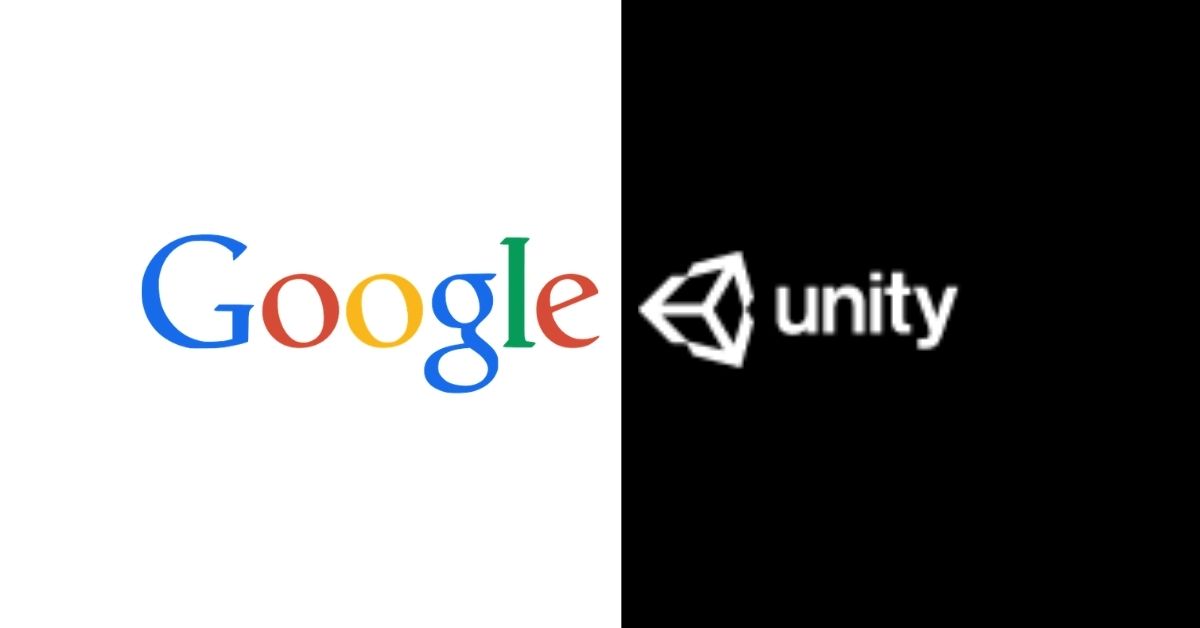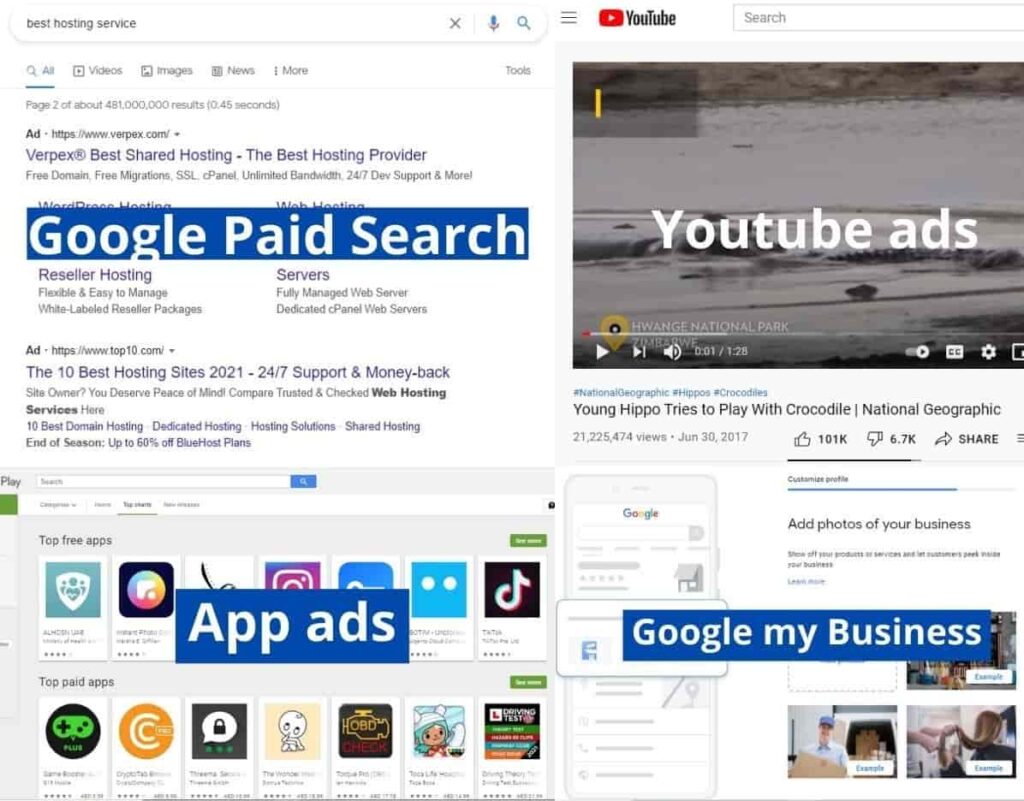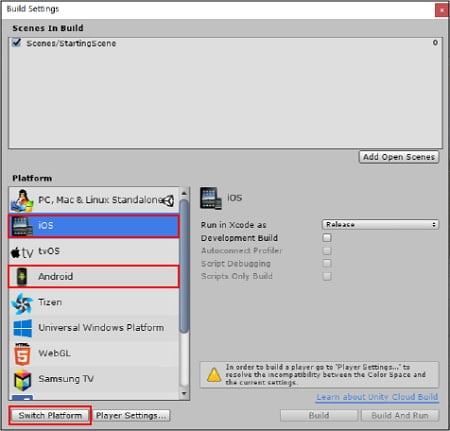Google Ads Vs. Unity Ads [Differences, Comparison]

Google Ads and Unity Ads represent two very different segments of advertising.
The only thing that probably makes them similar is that both are systems for showing digital advertisements.
So, if you are an online business owner and also have an app to your credit, you should probably be aware of how both of them work.
The following sections present the key differences between Google Ads and Unity Ads so that you may optimize your business on either front. So, Let’s get started…
Power of search
Google Ads primarily focuses on the power of search to display relevant ads. You can have your ads shown about different kinds of online products and services if you are the winning bid.
You can specify App campaigns in the settings. This helps promote your Android or iOS app on Google Search, Google Play, YouTube, and more.

The innovative technology used by Google Ads helps your App ads reach those users who are looking for a similar kind of experience.
Unity Ads are shown within apps using this platform to earn its revenues. It is primarily focused on the mobile gaming niche, monetizing the player base.
Like Google Ads, it can promote both iOS and Android apps. However, unlike Google Ads, it does not work with the power of search.
It instead uses cutting-edge machine learning for maximizing your revenue. Google Ads uses machine learning only for smart bidding.
For the mobile app market
Google Ads can be configured for targeting specific apps. You will have to click Display Campaigns in the navigation panel, followed by clicking Placements.
Then, select the ad group that needs modification. Specific categories of apps can be targeted within the app stores section. Specific apps can also be targeted.
Then, the app ID (iOS) or the package name (Google Play) is used for targeting specific apps.
Unity Ads needs to be integrated using the Advertising API. The latest Unity Ads package or SDK has to be downloaded and imported before that.
An Installation Guide is available and you must also create a Unity developer ID. The Monetization Dashboard is used to configure Ad units or legacy placements.
User participation
The motive of user participation is different in Google Ads and Unity Ads.
For Google Ads, the main incentive is to find the desired product or service.
Google displays the search ads and shopping ads on top of organic search results in response to a certain query. The search intent is matched the user purchases by clicking on one of the displayed ads.
As for Unity Ads, users are usually driven by an incentive to progress on the game by watching the ad.
Technical Expertise
Of the two, implementation of Unity Ads requires a greater degree of technical expertise.
You will have to install the latest SDK through the package manager. The implementation of the ads can be managed by the Unity Developer Dashboard. It also allows you to incorporate Augmented Reality ads.
Google also allows Augmented Reality, but only in certain YouTube Ads.
Managing Google Ads does not need developer knowledge. All you have to do is be familiar with the Google Ads navigation panel.
Advertising Model
Google Ads pursues a PPC-based advertising model where the advertiser has to pay a maximum bid amount every time a user clicks on the ad.
Three different formats are put to use.
- CPC: Cost Per Click where the advertiser pays for each click on the ad
- CPM: Cost Per Mille where the advertiser pays a set amount for every thousand impressions
- CPA: Cost per Acquisition where the advertiser pays on completion of a specified action, usually an acquisition of a new customer
Unity Ads calculates the earning by eCPM. Here, the advertiser pays a fixed amount to the app owner for every thousand clicks on the ad.
The more traffic your game can create on the ads, the more you earn. The average eCPM depends on the following factors.
- Platform
- Region
- Player demographics
- In-game ad units
Bidding model
Both Google Ads and Unity Ads have a bid-based system determining the display of the ads.
In Google Ads, you will have to decide on a bid strategy based on the goals you want to achieve. You can also use Smart Bidding, which is a set of automated bid strategies powered by Machine Learning.
The bidding system for Unity Ads is a little bit more technical. On receiving a request via a mobile device, Unity makes an HTTP POST request.
The request is sent to all bidding partner endpoints. Then, a first-price auction is run by Unified Auction according to valid bidder responses.
Use of rewards
Unity Ads offers rewards to gamers for watching ads. These rewards are in the form of gamer credits, or an increase in the lifeline, or some other advantage for carrying on the game.
Google Ads does not have any rewards system for clicking on the Ads.
Optimization features
Google reserves its optimization strategies exclusively for organic search.
With Google Ads, campaigns are arranged based on keywords, except in Google Shopping ads. There, the keyword is automatically derived from the product name and description.
Unified Auction, on the other hand, uses additional features empowering partners to optimize their buying strategies on the exchange. These include:
- Contextual data extensions
- Open measurement extensions
- Loss notifications
Use of filters
On both platforms, filters can be used to fine-tune the campaign. One of the major differences in these is that in Google Ads, you can create your custom filters and save them. Google Ads filters can show the following data.
- Keyword performance
- Disapproved ads
- Cost-ineffective areas (Higher cost but low performance)
Here are the filters used in Unity Ads.
- Ad revenue
- Total impressions
- eCPM (effective Cost Per Mille)
- Fill rate (Ratio of Rate of available ads served and the total number of ad requests)
- DAU impressions display the average value of impressions from Daily Active Users
Mediation availability
There are no mediators in Google Ads. Unity Ads allow mediations from different vendors. You can also run your Unity Ads in parallel to your mediation stack.
Conclusion
Google Ads and Unity Ads serve a similar purpose but are different in many respects.
Both of them have great potential and need to be utilized fully for business success.
While Google Ads is primarily focused on displaying ads on top of the SERPs, they also have a dedicated app ad section. Unity Ads does not have any additional presence outside specified apps.
Do you have anything else to add? Let me know in the comments section below…
For any help with your Google ads management, you can contact me anytime…


